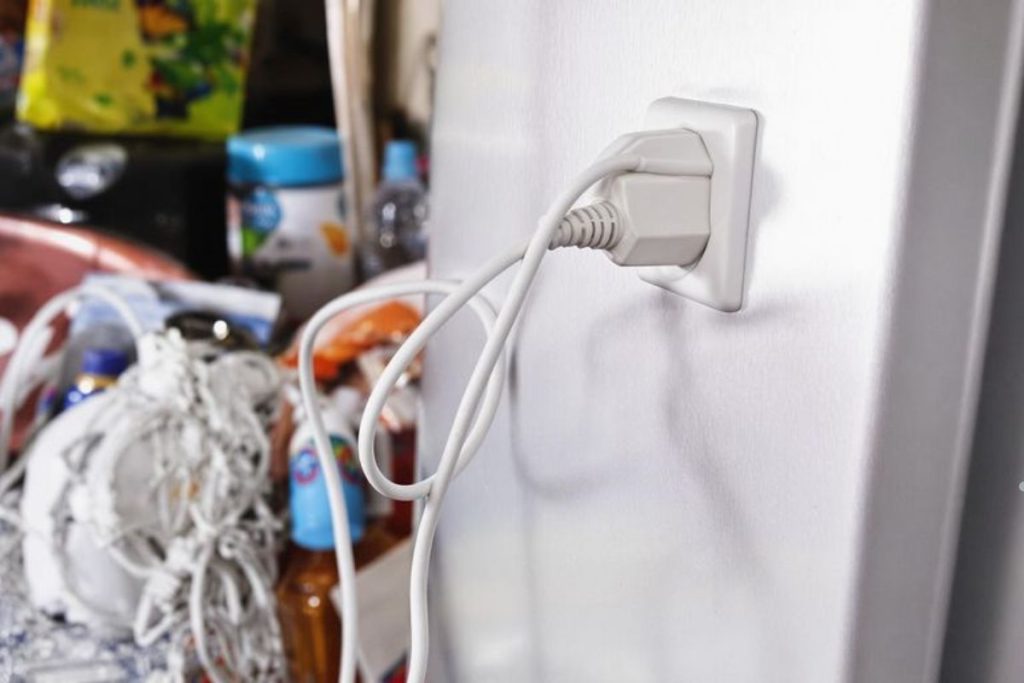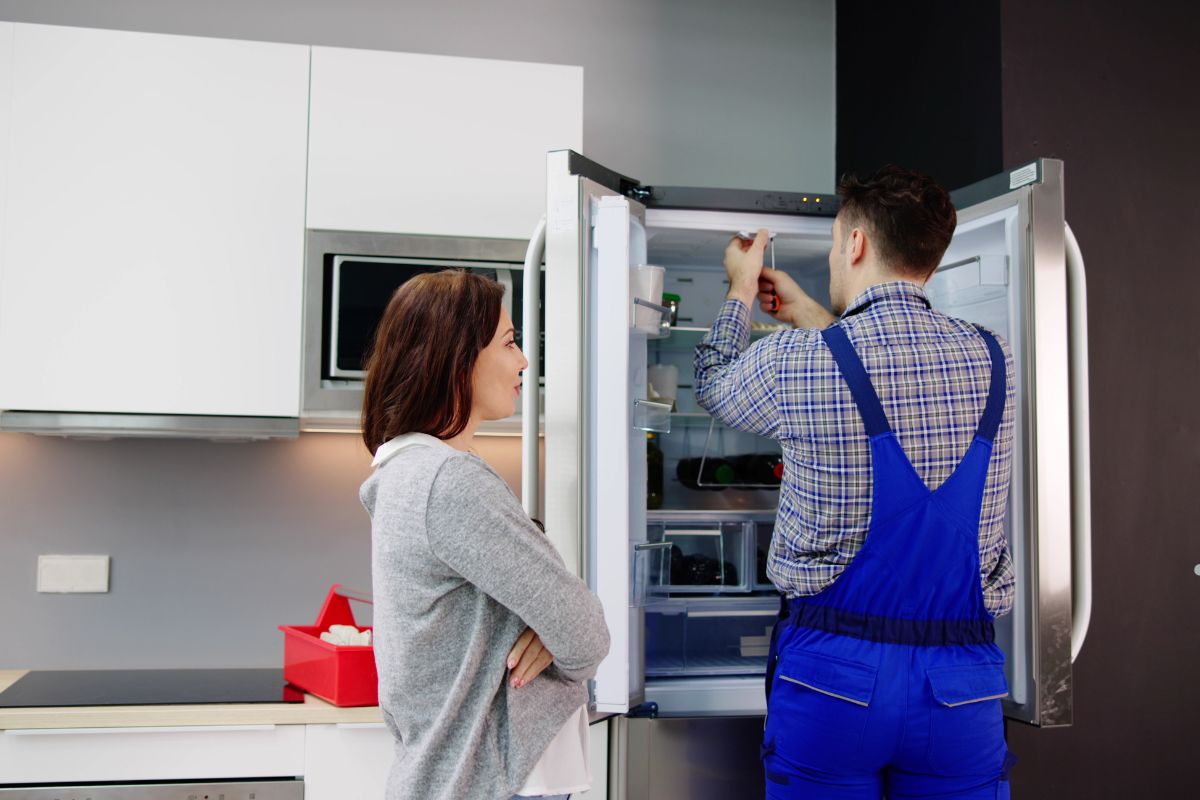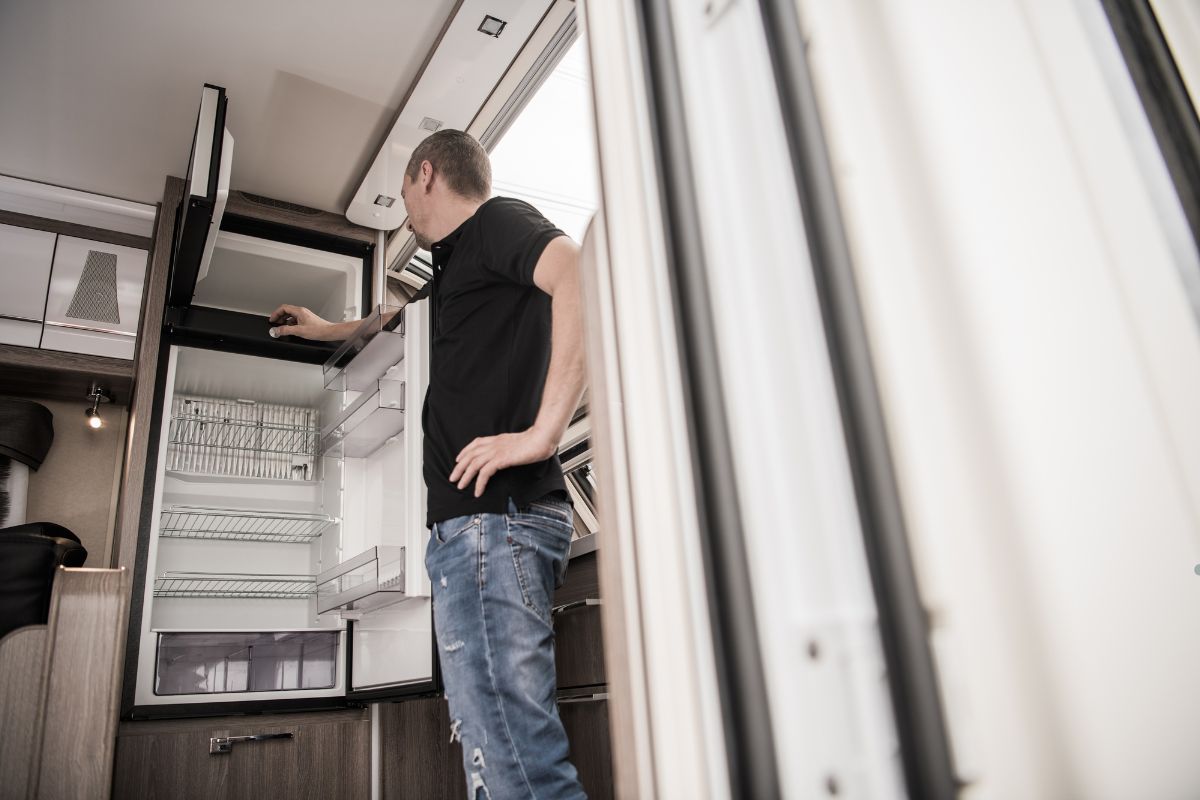
Ever had your fridge trip the circuit breaker and leave you scratching your head? You’re not alone. This is a common issue that can be caused by several factors, from electrical problems to specific issues with your refrigerator. It’s not just annoying—it can also be a sign of a bigger problem that needs attention. Let’s break down why this happens and what you can do about it.
Key Takeaways
- Circuit breakers trip to protect your home from electrical problems.
- Refrigerators use a lot of power, which can sometimes overload circuits.
- Faulty wiring or overloaded circuits are common culprits.
- Specific fridge issues like compressor overload can also cause trips.
- Regular maintenance and proper placement can help prevent future problems.
Understanding the Basics of Circuit Breakers and Refrigerators
How Circuit Breakers Protect Your Home
Circuit breakers are like the safety net for your home’s electrical system. They cut off power whenever there’s an issue, like an overloaded circuit or a short circuit. This prevents potential fires and protects your appliances from damage. Think of them as the first line of defense against electrical disasters. They work by monitoring the flow of electricity and tripping when something goes wrong.
A refrigerator that keeps tripping the circuit breaker can signal underlying electrical issues or appliance malfunctions, which can disrupt daily operations—especially in commercial settings. Regular maintenance and timely repairs are essential to keeping commercial appliances running safely and efficiently. Understanding the basics of circuit breakers and how they interact with refrigerators can help prevent unexpected breakdowns and costly repairs. Learn more about expert solutions in our guides on Commercial Appliances Repair Services.
The Role of Electrical Load in Tripping
Every appliance in your home draws a certain amount of power, and this is referred to as its electrical load. When too many devices are running on the same circuit, the breaker trips to prevent overheating or damage. For example, if your fridge, microwave, and toaster are all plugged into the same outlet, it could easily overload the circuit. Managing electrical load is key to avoiding these interruptions.
Why Refrigerators Are High-Powered Appliances
Refrigerators are among the most power-hungry appliances in your home. They run nearly 24/7, and components like the compressor require a lot of energy to operate. This high demand can sometimes push your circuit to its limit, especially if the fridge is older or malfunctioning. If your breaker keeps tripping, your refrigerator might be one of the main culprits.
A fridge isn’t just a simple appliance; it’s a complex system that needs consistent power to keep your food fresh and safe.
Common Electrical Issues That Cause Breaker Trips
Faulty Wiring in Your Kitchen
Faulty wiring can be a sneaky culprit behind your circuit breaker tripping. Over time, wires can wear out, fray, or even get chewed on by pests. This creates unstable connections that might result in sudden surges of electricity. When this happens, your circuit breaker steps in to prevent a potential fire hazard. Signs of bad wiring include flickering lights, outlets that feel warm, or a burning smell near your electrical outlets. If you notice any of these, it’s time to take action.
Overloaded Circuits and Their Impact
An overloaded circuit happens when too many appliances or devices draw power from the same circuit. Refrigerators, being high-powered appliances, can easily tip the scale if they share a circuit with other power-hungry devices like microwaves or toasters. Here’s a quick breakdown of what can happen:
- Lights dim when the fridge kicks on.
- Breaker trips when multiple appliances run simultaneously.
- Outlets feel warm or emit a faint electrical smell.
To avoid this, consider redistributing your appliances or upgrading your electrical system to handle higher loads.
Experiencing breaker trips due to electrical issues? Call us today for expert diagnostics and fast, reliable repair solutions!
The Dangers of Short Circuits
A short circuit occurs when an electrical current takes an unintended path, often due to exposed wires or damaged insulation. This can cause a massive spike in current flow, leading to an immediate breaker trip. Short circuits are dangerous because they can generate heat, sparks, or even fires in severe cases. Common signs include scorch marks near outlets, a popping noise when plugging something in, or a breaker that trips instantly after being reset.
If your circuit breaker frequently trips and you suspect one of these issues, it’s crucial to address the problem promptly. Ignoring it could lead to bigger, more dangerous problems down the line.
For more details on why circuit breakers trip, understanding the core reasons like short circuits, overloaded circuits, and outdated wiring is key to maintaining electrical safety.
Refrigerator-Specific Problems Leading to Breaker Trips
Compressor Overload and Its Effects
The compressor is the heart of your fridge, responsible for keeping things cold. But when it works too hard—maybe because the fridge is overstuffed or the coils are dirty—it can draw more power than usual. This extra demand can trip the breaker, leaving you with a warm fridge and spoiled food. Regularly cleaning the condenser coils and not overloading your refrigerator can help avoid this problem.
Defective Start Relays in Refrigerators
A start relay helps the compressor kick on. If it’s faulty, the compressor might struggle to start or fail entirely. This can cause repeated power surges, which can trip the breaker. Signs of a bad start relay include a clicking noise or the fridge not cooling properly. Replacing a defective start relay is usually a straightforward fix.
How a Malfunctioning Defrost Heater Contributes
Most modern refrigerators have a defrost heater to melt away ice buildup. If this component shorts out, it can cause an electrical overload that trips the breaker. You might notice puddles of water inside the fridge or frost building up in the freezer. Testing the defrost heater with a multimeter can confirm if it’s the culprit, and replacing it can resolve the issue.
If your fridge keeps tripping the breaker, it’s often a sign of an internal issue that needs attention. Ignoring it might lead to bigger problems down the road.
“Refrigerators can experience a range of issues, from temperature fluctuations to electrical malfunctions, often requiring professional attention. Regular maintenance and timely repairs can help extend the lifespan of your appliance and prevent costly breakdowns. Whether it’s a faulty thermostat, a damaged door seal, or a compressor issue, addressing refrigerator-specific problems early can save you from major inconveniences. Learn more about expert solutions in our guides on Small Appliances Repair Services.
Environmental Factors That May Trigger Breaker Trips

Power Surges and Their Impact on Appliances
Power surges happen when there’s a sudden spike in electrical voltage. These surges can overload your refrigerator’s components, causing the circuit breaker to trip. Even a brief surge can damage sensitive parts like the compressor or control board. Common causes of power surges include lightning strikes, faulty wiring, or sudden changes in electricity demand in your area. To protect your fridge, consider using a surge protector specifically designed for large appliances.
Moisture and Electrical Shortages
Moisture is a sneaky culprit when it comes to electrical problems. If water or condensation gets into your refrigerator’s wiring or outlets, it can create a short circuit. This not only trips the breaker but also poses a safety hazard. High-humidity areas or leaks near your fridge are common sources of moisture. To avoid this, ensure your fridge is placed in a dry area and check for any nearby plumbing issues that could lead to leaks.
The Role of Temperature Fluctuations
Extreme temperatures can mess with your refrigerator’s performance. For instance, if your fridge is in a garage or an uninsulated space, drastic temperature changes can strain its components. In hot weather, the compressor works overtime, increasing the electrical load and potentially tripping the breaker. On the flip side, freezing temperatures can cause the internal fluids to thicken, making the motor work harder. If possible, keep your fridge in a temperature-controlled environment to avoid these issues.
When it comes to environmental factors, prevention is key. Small adjustments like using a surge protector or relocating your fridge can save you from bigger electrical headaches down the road.
| Environmental Factor | Potential Problem | Solution |
| Power Surges | Overloaded components | Use a surge protector |
| Moisture | Short circuits, safety hazards | Keep fridge in a dry location |
| Temperature Fluctuations | Strain on compressor and motor | Place fridge in a controlled environment |
Diagnosing the Problem with Your Refrigerator

Signs Your Fridge Is Causing the Issue
When your circuit breaker keeps tripping, the refrigerator might be the culprit. Here are a few signs to watch for:
- Frequent breaker trips when the fridge cycles on.
- Unusual noises like clicking or buzzing coming from the appliance.
- Warm food or inconsistent cooling inside the fridge.
If you notice these issues, it’s time to dig deeper.
Using a Multimeter to Test Components
A multimeter is a handy tool for pinpointing electrical problems in your refrigerator. Here’s how you can use it:
- Unplug the fridge to ensure safety before starting.
- Test the compressor for continuity. Place the multimeter probes on the compressor terminals; a reading outside the normal range might indicate a problem.
- Check the start relay. Remove the relay and test it to see if it’s functioning properly.
- Inspect the defrost heater. Use the multimeter to measure resistance; abnormal readings could mean it’s defective.
If you’re not sure how to interpret the readings, it’s best to consult a professional.
When to Call a Professional Electrician
Sometimes, diagnosing and fixing the issue yourself isn’t practical. Call a professional if:
- You suspect faulty wiring or a short circuit.
- The multimeter tests reveal issues you don’t know how to resolve.
- The breaker trips even after addressing potential refrigerator-specific problems.
Remember, electrical issues can be dangerous. If you’re ever in doubt, prioritize safety and get expert help.
For more tips on troubleshooting, check out how to fix a non-working refrigerator.
Preventative Measures to Avoid Future Breaker Trips
Upgrading Your Electrical Panel for Safety
If your home’s electrical panel is outdated, it might not handle the demands of modern appliances like a refrigerator. Consider upgrading to a panel that can support higher amperage. This is especially important for homes with older wiring, as they are more prone to tripping breakers. For example, refrigerators and freezers should be installed on a dedicated 15-20 amp 120-volt circuit to prevent electrical overload. Consult a licensed electrician to evaluate your setup.
Regular Maintenance for Your Refrigerator
Keeping your fridge in good shape can go a long way in preventing electrical issues. Here’s a quick checklist:
- Clean the condenser coils at least twice a year to ensure efficient operation.
- Check the door seals for wear and tear—damaged seals can make the compressor work harder.
- Inspect the power cord for any visible damage or fraying.
Regular maintenance not only helps your fridge run smoothly but also reduces the chances of it tripping the breaker.
The Importance of Proper Appliance Placement
Where you place your refrigerator matters more than you might think. Avoid positioning it in areas with extreme temperatures, such as garages or near heat sources like ovens. Extreme heat or cold can strain the appliance, making it more likely to overload the circuit. Also, ensure there’s enough space around the fridge for proper ventilation. A cramped spot can make the motor overheat, which is a common trigger for breaker trips.
Taking these preventative steps now can save you from bigger headaches down the road. A little effort in maintenance and setup can make a huge difference in your fridge’s performance and your home’s electrical safety.
When to Repair or Replace Your Refrigerator
Assessing the Cost of Repairs
When your fridge starts acting up, the first thing to think about is how much the repair will cost. A good rule of thumb is this: if the repair costs more than half the price of a new fridge, it might be time to let the old one go. Spending too much on constant repairs can be like throwing money into a bottomless pit. Plus, some older models may keep breaking down even after being fixed, making the investment less worthwhile.
Signs It’s Time for a New Appliance
Sometimes, the signs are obvious. Here are a few red flags that mean it’s time to start shopping for a new fridge:
- Your fridge is over 10-15 years old. Most don’t last much longer than that.
- Food keeps spoiling faster than it should, even at the right settings.
- The fridge makes loud, strange noises that don’t stop.
- You notice a spike in your energy bills that lines up with the fridge acting up.
Energy Efficiency Considerations
Older refrigerators can be real energy hogs. If you’ve had yours for a while, it might be worth looking at newer, more efficient models. Energy-efficient fridges can save you money on your utility bills over time. They’re also better for the environment, which is a nice bonus. Check for models with an Energy Star rating—they’re designed to use less power while still keeping your food fresh.
Deciding whether to repair or replace your refrigerator isn’t always easy, but weighing the costs, age, and energy use can help make the choice clearer.
Wrapping It Up
So, there you have it. If your fridge keeps tripping the circuit breaker, it’s not just bad luck—it’s probably one of the common issues we talked about. Whether it’s an overloaded circuit, a faulty compressor, or even just a bad plug, there’s usually a reason behind it. The good news? Most of these problems can be fixed, either by you or a professional. Just remember, safety first. If you’re not sure what’s going on, don’t hesitate to call in an electrician or appliance repair expert. It’s better to spend a little now than risk a bigger problem later. Hopefully, this helps you get your fridge back to doing what it does best—keeping your food cold and your drinks refreshing.
Frequently Asked Questions
Why does my fridge keep tripping the circuit breaker?
Your fridge might trip the breaker due to issues like faulty wiring, an overloaded circuit, or problems within the fridge itself, such as a bad compressor or defrost heater.
What should I do first if my refrigerator trips the breaker?
Start by unplugging the fridge and resetting the breaker. Then, check for any visible damage to the cord or outlet. If the problem continues, you may need to inspect the fridge or call an expert.
Can a power surge cause my refrigerator to trip the breaker?
Yes, power surges can overload circuits and cause the breaker to trip. This is especially true if your home doesn’t have surge protectors.
How do I know if my refrigerator’s compressor is the problem?
A failing compressor often makes loud noises or struggles to keep the fridge cool. You can use a multimeter to test it, or get a professional to check it for you.
Is it safe to keep resetting the breaker when it trips?
No, repeatedly resetting the breaker can be dangerous. It’s better to find and fix the cause of the problem to avoid potential electrical hazards.
When should I replace my refrigerator instead of repairing it?
If repairs are too costly or the fridge is old and inefficient, replacing it might be the better option. Newer models also save more energy, which can lower your electricity bills.
Is your fridge constantly tripping the circuit breaker? Contact us for expert troubleshooting and reliable repair solutions!
